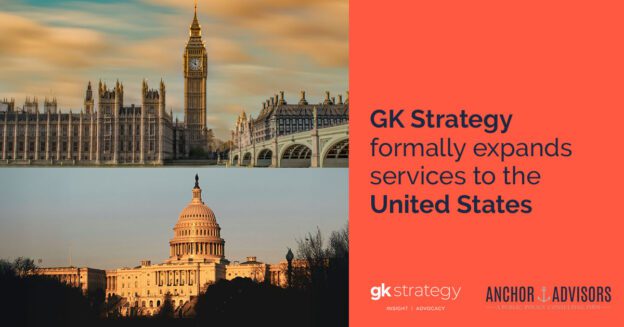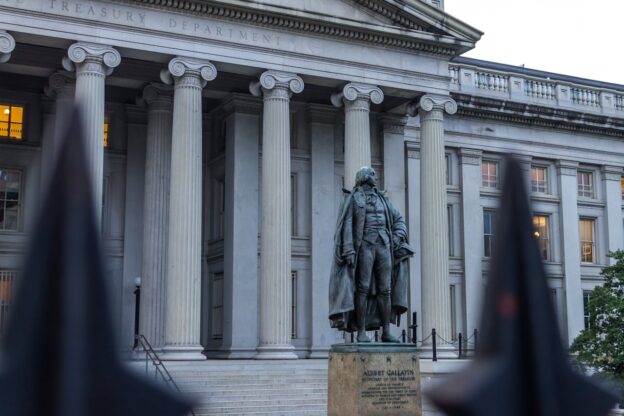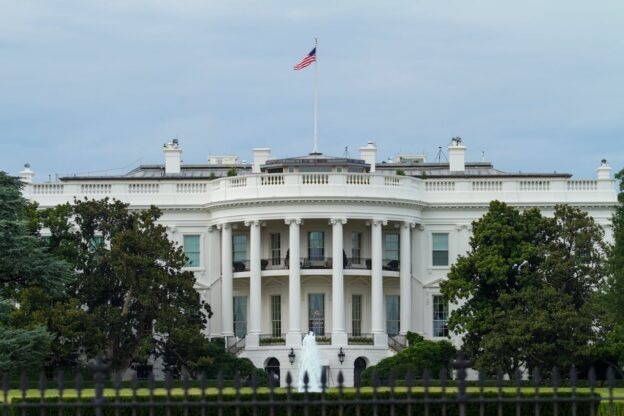History repeats itself. An adage the US President and his team of advisers would do well to heed.
In 2022 the radical tax cutting budget announced by Liz Truss’ government sent yields on UK gilts spiralling out of control, with the 10-year gilt yield increasing by the largest amount in a single day since the 1990s. The Bank of England had to intervene with emergency bond purchases to prevent a collapse in the pension fund market.
This market crisis ultimately had profound political consequences, with Kwasi Kwarteng being removed as Chancellor after just 38 days in office, and the end of Liz Truss’s premiership following soon after, making her the shortest-serving Prime Minister in UK history at only 49 days.
The episode highlighted how sensitive financial markets can be to fiscal policy decisions, particularly when they raise concerns about a country’s debt sustainability or when policy changes are announced without adequate preparation or buy-in from the market.
We can look further back to understand the might of the bond market. President Clinton’s economic adviser, James Carville, said: “I used to think that if there was reincarnation, I wanted to come back as the President or the pope or as a .400 baseball hitter. But now I would want to come back as the bond market. You can intimidate everybody.” This has arguably proved to be the case for President Trump – despite trillions being wiped off the stock market, it was rising yields on US Treasury bonds that forced him to blink.
The President claims that the decision to pause the new reciprocal tariff regime for 90 days was the result of 75 countries contacting the White House to express willingness to negotiate trade deals. This narrative creates a potential blueprint for a further watering down of tariffs once the pause ends. Trump has created some leeway to say that after successful negotiations countries will no longer be “ripping off” the United States and will point to his tariffs as a masterstroke in political and economic diplomacy. This exit strategy, however, may come too late to repair the damage done to the international economic and geopolitical order that Trump’s approach is likely to leave in its wake.
This short reprieve, as it may still turn out to be, is creating major issues for the global economy, with financial markets in a state of flux trying to pre-empt and then respond to Trump’s next move. The political and economic uncertainty of the next three months will be difficult to navigate, particularly for multinational businesses with complex supply chains.
UK Prime Minister Sir Keir Starmer has already acknowledged that fixating on whether the UK can negotiate the removal of its own 10% tariff is almost irrelevant, given the potentially more serious impacts the UK could face in the event of a global economic slowdown. A trade war between the two biggest global economies – the United States and China – would have far reaching implications that no country would be able to insulate itself from. The Bank of England has already warned that supply chain disruptions would be expected to weigh heavy on UK economic activity.
This all creates a big headache for the Chancellor of the Exchequer, Rachel Reeves. Having had to make some politically unpopular decisions in recent week to restore the £9billion of fiscal headroom she identified in the autumn budget in October, she could once again find this headroom wiped out as UK growth is revised down. There is already speculation about HM Treasury’s potential response. Tax rises, more spending cuts, or additional borrowing are the options, and none of them are politically palatable.
The global economic challenges have already had an impact on the machinery of government. The Prime Minister has removed two key people from the Number 10 policy unit as part of efforts for the government to speed up economic growth and policy delivery. In the coming weeks it is likely the government will bring forward the publication of the government’s Industrial Strategy (originally scheduled for publication alongside the Spending Review in June) to demonstrate that the UK is open to business and ripe for international investment. The government has also shown a willingness to support industries that are exposed to tariffs. In anticipation of tariffs coming into effect, Starmer announced a watering down of regulations relating to electric vehicle sales targets to provide manufacturers with some breathing space. We are likely to see additional measures announced as the government continues its consultation with business on the impacts of higher tariffs, and what the UK’s response should be.
The government is facing a significant challenge to its central mission to grow the economy and raise living standards. A renewed emphasis to go further and faster in the delivery of its reform agenda, does, despite the doom and gloom, offer an opportunity for businesses. Policymakers are firmly in listening mode. Businesses that can offer solutions to the economic pressures the government is facing, as well as a commitment to investing in the UK, will find a welcoming ear.
The next few months will undoubtedly be challenging and uncertain. However, a renewed collaboration between the public and private sector to navigate these turbulent times has the potential to offer a pathway for the UK to position itself as a top destination for investment and business growth.






